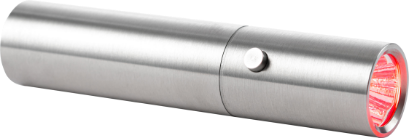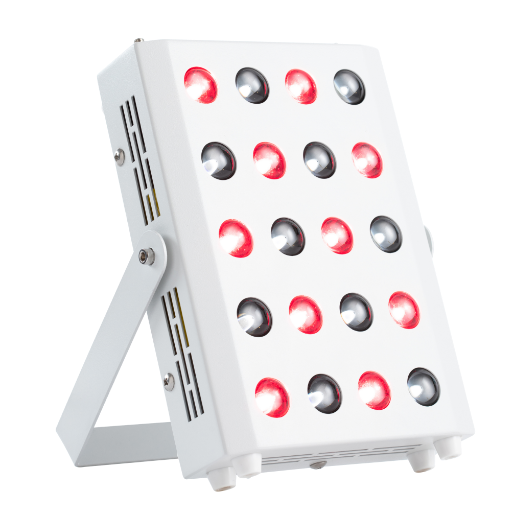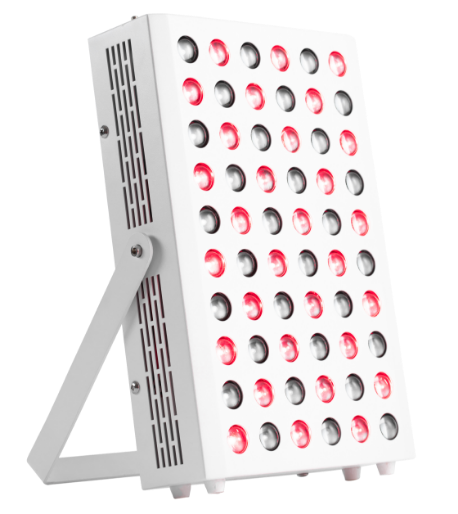Given that people spend about one-third of their lives asleep, sleep has substantial functions for human development, day-to-day functioning, and overall health. It’s definitely one of the most important parts of the day, especially for performance.
However, sleep conditions such as insomnia, which affects around 30% of adults in the US, can disrupt this natural flow and make it hard for millions to fall asleep, stay asleep, or not be able to get back to sleep. This leads to sufferers feeling tired when they wake up, leading to lower energy and mood levels, poorer work performance and overall quality of life.
In this article, we will summarise why sleep is essential for good health, how sleep deficiency can be detrimental, and how light therapy can help you to reclaim a good night sleep-cycle.
How Sleep is Essential for Good Health
Sleep plays one of the most important roles in good health and well-being throughout your life. By getting enough quality sleep at the right times, you can help protect your mental health, physical health and overall quality of life. For example, sleep is heavily involved in the healing and repair of your heart and blood vessels.
The reason you feel the way you do during the day has everything to do with how your body works during your sleep cycle. During your sleep, your body is working hard to support healthy brain functions, and more notably for children and teens, it works to support healthy growth and development.
7 Serious Effects of Sleep Deficiency
- Memory – during your natural sleep-cycles, your brain works to build connections that help you process and remember new information. This is where dreaming comes into play. But a lack of sleep can have a serious impact on both your short and long term memory.
- Mood – studies have shown that chronic sleep deprivation sufferers are more likely to have anxiety or depression. Also people who are sleep deprived from time to time report increases in negative moods such as anger, frustration, irritability or sadness.
- Weakened Immune System – people who don’t get enough sleep are more likely to get sick after being exposed to a virus (such as the common cold). Lack of sleep can also affect how fast you recover if you do get sick.
- Weight Gain – sleep deprivation is also closely associated with increased oxidative stress, glucose intolerance, and insulin resistance. This extra time sufferers spend awake also may lead to increased eating and disruption of healthy circadian rhythms.
- Poor Balance – lack of sleep can also heavily affect your balance and coordination, making you susceptible to falls and injuries, especially in the older population.
- Low Sex Drive – there is a link between sleep deprivation and lower testosterone levels in men, which can lead to a lower sex drive and decreased libido.
- High Blood Pressure – a study performed by the University of Arizona has shown that people with a lower sleep efficiency showed an increase in blood pressure during the night. They also had higher systolic blood pressure the next day.
How does Red Light Therapy Help
Red light therapy has rapidly gained popularity over the past decade due it’s fast-acting health benefits and improvements to overall wellbeing. Several studies have shown the impact of Red Light on cellular health – making it the perfect choice for people experiencing joint pains, skin issues and other conditions.
But the benefits do not stop there.
There have been several studies that have shown to improve sleep quality and duration in people – and the results are promising! How? The theory is that red light wavelengths stimulate the production of melatonin, a naturally occurring hormone that helps you sleep.
Study 1
Take this study on Red Light and Sleep Quality, which found that a 14 days treatment of Red Light improved the sleep, serum melatonin level and endurance performance of elite female basketball players.
Study 2
A more recent study in Nature and Science of Sleep found a positive correlation between red-light exposure and reduced sleep inertia. Sleep inertia can be described simply as the groggy feeling you experience when you first wake up. It appeared to be reduced in patients exposed to red-light through closed eyelids.
What to do next?
If you’re ready to explore the use of Red Light Therapy at home, we suggest checking out our range of Red Light Therapy products that are high-quality, affordable and approved by the FDA. Please do get in touch if you have any questions about Red Light treatments and how you can start your journey into better cellular health and function.







